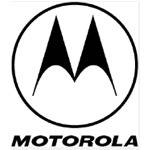Google has taken an important first step towards finalizing its acquisition of Motorola Mobility. Today the European Commission, the European Union’s version of the Federal Trade Commission, approved the merger. The commission granted the approval, “mainly because it would not significantly modify the market situation in respect of operating systems and patents for these devices.”

The rest of the regulatory chips should fall in line for Google and Motorola after E.U. approval. The merger still needs to be approved in the U.S., China, Israel and Taiwan, but the logic of the European Commission is sound. Motorola only took 2% of profits from the entire mobile industry last year. From an anti-trust perspective, Google could buy Sony Ericsson and LG and still not come anywhere near the combined market share of Samsung and Apple.
Update: The U.S. Department of Justice has also approved the acquisition. See below for details.
Update: Just hours after the European Commission approved the acquisition, the U.S. Department of Justice has weighed in as well. In addition to approving the Motorola/Google acquisition, the DOJ approved the two other major patent acquisitions from 2011. That includes Apple, Research In Motion and Microsoft purchase of Nortel’s mobile patents as well as Apple’s purchase of Novell patents. Here is the statement from the DOJ:
The Department of Justice’s Antitrust Division issued the following statement today after announcing the closing of its investigations into Google Inc.’s acquisition of Motorola Mobility Holdings Inc., the acquisitions by Apple Inc., Microsoft Corp. and Research in Motion Ltd. (RIM) of certain Nortel Networks Corporation patents, and the acquisition by Apple of certain Novell Inc. patents:
“After a thorough review of the proposed transactions, the Antitrust Division has determined that each acquisition is unlikely to substantially lessen competition and has closed these three investigations. In all of the transactions, the division conducted an in-depth analysis into the potential ability and incentives of the acquiring firms to use the patents they proposed acquiring to foreclose competitors. In particular, the division focused on standard essential patents (SEPs) that Motorola Mobility and Nortel had committed to license to industry participants through their participation in standard-setting organizations (SSOs). The division’s investigations focused on whether the acquiring firms could use these patents to raise rivals’ costs or foreclose competition.
“The division concluded that the specific transactions at issue are not likely to significantly change existing market dynamics.”
Ostensibly, Google is buying Motorola Mobility for its 17,000 patents. Unlike Taiwanese smartphone maker HTC, Motorola has faired well in the patent wars, winning battles against Apple in courts around the world in recent weeks. Motorola lost the most recent battle over “3G” technology in Germany but overall has faired better than other Android device makers like Samsung.
“We have approved the acquisition of Motorola Mobility by Google because, upon careful examination, this transaction does not itself raise competition issues. Of course, the Commission will continue to keep a close eye on the behaviour of all market players in the sector, particularly the increasingly strategic use of patents,” said Joaquin Almunia, VP in charge of competition policy at the European Commission in a release.
What Almunia is really saying is, “everybody is suing the hell out of everybody else and we will keep track of Google to make sure it does not abuse these patents.”
One snag that Google could face outside of the E.U. is the fact that Motorola has a small presence in Europe. The commission notes that in its statement saying, “Google would restrict the use of Android solely to Motorola, a minor player in the European Economic Area, as compared to operators such as Samsung and HTC.”
When Google announced the acquisition, CEO Larry Page said it was intended to defend and “supercharge” Android. Many Android OEMs pay patent licensing fees to Microsoft and are hounded by Apple in courts. Google’s primary mission with Android is to drive mobile advertising and adoption of Google apps (like Gmail, YouTube, Maps, Music etc.) on smartphones. The commission said that Google’s acquisition of Motorola would not enhance or inhibit the search giant’s ability to push users toward those services.
“The Commission also examined whether Google would be in a position to use Motorola’s standard essential patents to obtain preferential treatment for its services, including search and advertising. The Commission found that Google already had many ways in which to incentivise customers to take up its services and that the acquisition of Motorola would not materially change this,” the report stated.
The commission also stated that it “cooperated with a number of competition authorities and in particular with the U.S. Department of Justice.”
That last line could be very telling in how the U.S. treats the proposed merger. If the U.S. DOJ consulted the European Commission then it is more likely that the two entities share the same ideas on the merger.
Google’s $12.5 billion acquisition of Motorola should not affect the ecosystem at large, considering that Apple and Samsung own 95% of mobile phone profits worldwide. Page may see Apple’s profits and want to get in on the device game but the idea is to use Motorola to protect Android.




















